This post may contain affiliate links. If you make a purchase through a link, I may receive a small commission, at no cost to you. These commissions help keep this website up and running, and I thank you for your support. Read my full disclosure here.
Whilst travelling, I have experienced the highs and lows of water hardness and its effects on my hair and skin. Water hardness refers to the level of calcium and/or magnesium minerals that water contains. The higher the mineral content, the harder the water.
When hard water combines with soap and shampoo, the calcium and magnesium affect its ability to lather up. It forms soap scum, which adheres to hair and skin. Conversely, when soap and shampoo are used with soft water, they lather and clean more effectively. In order to get products to lather in hard water, manufacturers use synthetic surfactants, which can be harsh and irritate your skin.
Unfortunately, most of us have no control over our water hardness because we rent or can’t afford the high cost of a water softening system for our home. But that’s okay because I’m going to share with you all the tips you need to get your hair and skin looking and feeling great, regardless of hard water.
Do you have soft water? Then read my post on how to get great hair and skin with soft water.
Did You Know?
There are 2 types of hard water, one can be made softer by boiling it, but the other cannot.
Find out Your Water Hardness
First order of business is to find out what kind of water you have. You can get this information by contacting your local council or water provider (these days this information is usually published online). Signs of hard water are usually quite obvious around the house, such as:
- Soap scum ring around the bath
- White residue on the taps, showerhead and inside the kettle.
If you are still unsure, then you can purchase water testing strips or try this simple test in the video below.
The Effects of Hard Water on Skin
When washing in hard water, skin gets covered in a film of soap scum, which can cause it to dry out and become itchy. Hard water can aggravate skin conditions such as psoriasis, dermatitis and eczema and soap scum can block pores and cause acne.
How to Resolve the Effects of Hard Water on Skin
- Reduce the temperature of your shower (difficult to do in winter, I know). Hot water can inflame and dry out your skin.
- Wash your face with lukewarm or cool water.
- Capture and use rainwater to rinse or use distilled water.
- Use a moisturising body wash instead of soap. They are better at foaming in hard water and contain moisturisers to counteract the drying effect of hard water.
- Use a gentle soap free cleanser such as Cetaphil’s Gentle Skin Cleanser. You don’t need foamy soap to get a good clean. Originally formulated by dermatologists, this cleanser is non-comedogenic (won’t clog pores) and maintains the natural pH balance of your skin.
- Consider using an anhydrous cleanser (one that needs no water) such as Devita Natural Skin Care Cleanse Creme to avoid using water on your face.
- Use face wipes to cleanse your face instead of using hard water. I like RAWGANIC Fragrance-free Biodegradable Organic Cotton Wipes. They do a great job cleansing sensitive skin. Read my Review of the Best Biodegradable Eco Friendly Face Wipes on the Market.
- Use a gentle cleansing, moisturising toner and avoid those containing alcohol, which can further dry out and irritate your skin. Try LOccitane Alcohol-Free Immortelle Essential Water.
- Regularly use a face brush to remove residue. Use either a dry face brush or an electric face brush.
- For those of you struggling with blocked pores, use a gentle scrub once or twice a week to help unclog. I prefer not to use granular scrubs as they are too harsh and scratch at your skin. Instead, use a chemical exfoliator containing glycolic acid or salicylic acid. Try these Glycolic Acid Peel Pads. The glycolic acid unclogs and diminishes enlarged pores, blackheads and acne breakouts.
- Use a clay based mask once or twice a week to help pull the soap scum out of your clogged pores. Packed with beneficial vitamins and minerals, as the mask dries, it pulls out toxins and excess oils and gets rid of pimples, blackheads, and breakouts. It’s also great for blemishes on the chest and back. Try this Detox Clarifying Face Powder Mask, which uses charcoal and French clay, designed for pore cleansing.
- Always moisturise after washing, but use a moisturiser that won’t cause further irritation if you have sensitive skin. Make sure your moisturiser is non-comedogenic – i.e. won’t block pores. Try Cetaphil’s range of face and body moisturisers that have been designed by dermatologists.
- If you experience eczema caused by dry skin and hard water, then try my homemade All-Natural Salve Recipe for Eczema and Dry, Irritated Skin.
The Effects of Hard Water on Hair
Soap scum can build up on hair and weigh it down. This can leave it looking and feeling dull, brittle and lifeless. With hard water, you will find yourself needing to use more shampoo as the minerals interfere with the product’s ability to lather and foam. It also causes the scales on your hair shaft to stand up, making it more difficult to rinse clean. This makes it feel rough, fluffy, tangled and out of control. It may also be difficult to style and hold a curl. Furthermore, the soap scum and minerals can build up on the scalp and cause a fine, powdery type of dandruff.
Some types of heavy water can also contain minerals such as iron that slowly tint hair, causing light coloured hair to become a tinted orange and dark hair to become a coppery red. For those who dye their hair, hard water can wash the colour out quicker.
How to Resolve the Effects of Hard Water on Hair
- Use a chelating shampoo like Mizani Phormula-7 Neutralizing and Chelating Shampoo once or twice a week. It’s designed to remove excess ions and mineral deposits from the hair, leaving it healthy, shiny and moisturised. Or for a complete treatment, try the Malibu Hard Water Wellness Treatment Kit, which includes shampoo, conditioner and treatment. These products are designed to remove both mineral and product build-up. But be careful, as they can be quite drying, so always finish with a conditioner and don’t overdo it.
- Rinse hair with a mix of 2 tbsp to ¼ cup (depending on the length of hair) of apple cider vinegar (ACV) or white vinegar to 2 cups of water. Vinegar can help remove the dandruff caused by hard water. ACV is milder and often preferred by those with colored hair. However, some blondes find it can give their hair a red tone. In that case, you should try using white vinegar instead. You will also need to play around with the dilution of it too, as everyone’s hair responds differently. Use more vinegar for oily hair and less for dry hair.
- Rinse hair with 2 tbsp to ¼ cup (depending on the length of hair) of lemon juice mixed with 1 cup of warm water. This can remove mineral and soap scum buildup, as well as the powdery dandruff it can cause. It is also very effective for those with oily hair because it is an astringent, which helps to shrink your pores and reduce oiliness. But be aware that it can lighten your hair, which is great for those of wanting to create natural highlights.
- For stubborn dandruff, follow my guide to treating dandruff using natural treatments that actually work.
- Capture and use rainwater to rinse with or use distilled water.
- Use deep conditioning treatments and leave-in conditioners to add additional moisture to your hair. For those looking for natural alternatives, try coconut oil, argan oil, or almond oil.
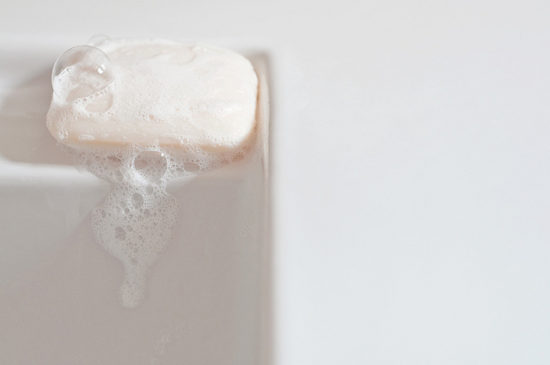
Can’t Get the Same Hair as in the Salon?
They may use a water softening system. If you have hard water at home, then this may be the reason for the difference.
Shower Filters: Do They Soften Water?
There are a lot of shower head filters that market themselves as both water purifiers and softeners. But choose carefully because many of them don’t actually soften water. For example, the shower filters that use KDF chlorine filters or charcoal filters remove chlorine and iron, but they do not remove calcium or magnesium. That means they do not actually soften your water. To soften water, you will need a filter that uses salt. These devices also attach to your shower, but are larger and require you to regularly replace the salt solution that is responsible for softening the water. Alternatively, you can invest in an actual home water softening system.

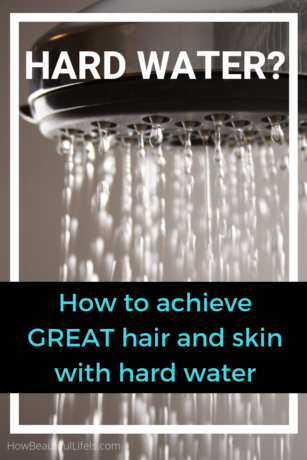
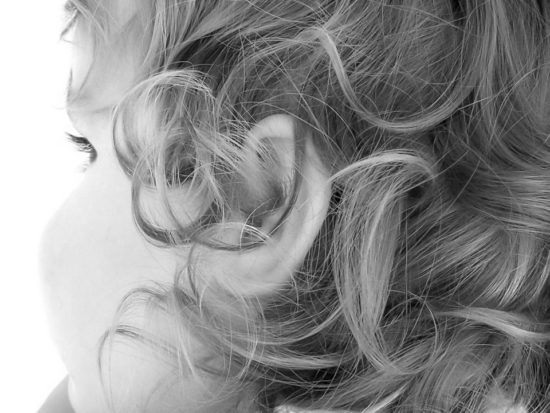
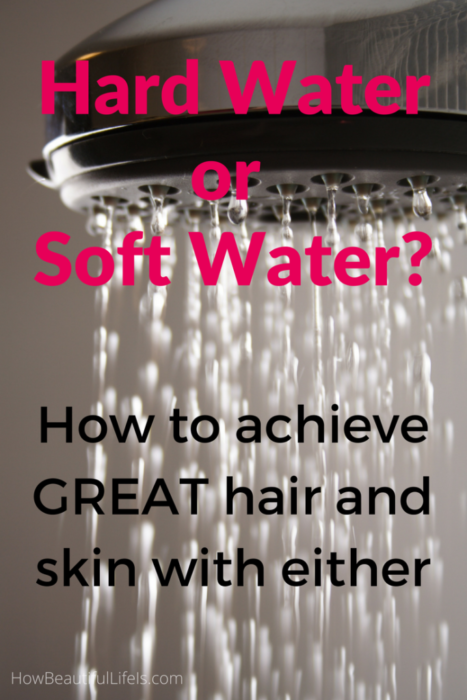
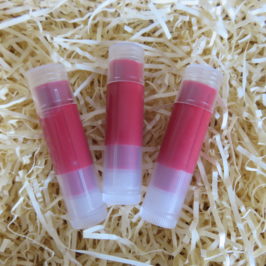


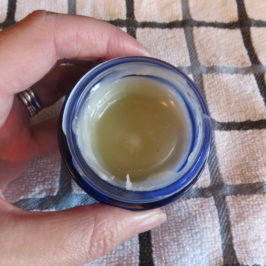
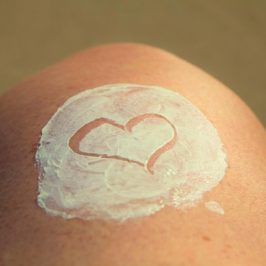
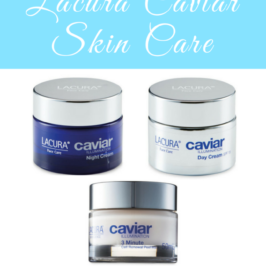
Sarah
This is amazing. I am breaking out so bad with the hard water in my apartment. I will also be using diluted vinegar on my face and bossy to help with the breaking out! I feel like I’m in middle school again with how bad my skin has gotten! I can’t wait to try the things you listed in here!
Chris Pederson
Thanks for sharing how signs of soap scum and white residue mean you have hard water. Some people might not believe this and keep living with hard water. I want to take care of my skin and hair so I’ll look into getting some kind of treatment for my water system.